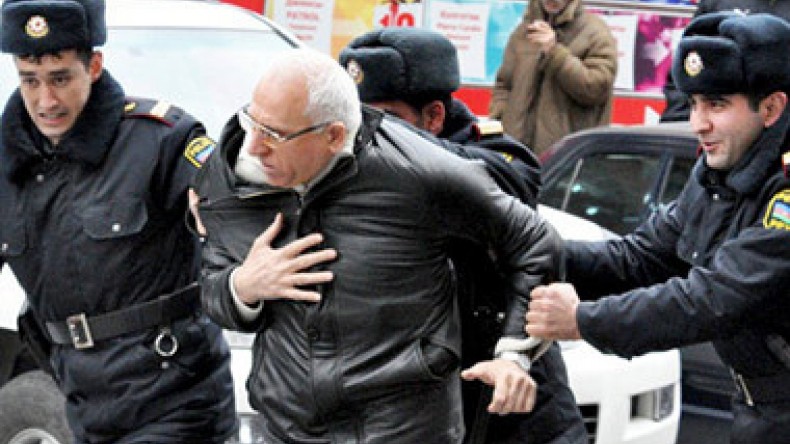
EU condemns democracy and human rights situation in Azerbaijan in its annual report
The authors of the annual report of the European Commission, regarding the situation of the human rights in states taking part in European Neighbourhood Policy, have sharply criticized the Azerbaijani government. They noted that the situation of democratic reforms, human rights and fundamental freedoms deteriorated in the country through 2014, site Ekho Kavkaza reports.
“There was regression in the democratic transition process and with regard to human rights and fundamental freedoms, e.g. the freedom of religion or belief, freedom of expression and freedom of assembly. The situation of Civil Society Organisations (CSOs) deteriorated considerably and a more restrictive legal framework was introduced. As a result, many CSOs suspended their activities. A number of prominent Human Right Defenders were detained, travel bans were issued and bank accounts of civil society organisations were frozen,” the Report, posted on the EU website, reads.
The situation of the NGOs and human right defenders aggravated in Azerbaijan, the authorities of the country did not take up proper measures to improve the legislation and settle down Karabakh conflict, Caucasian Knot reports citing the representatives of the European Commission.
According to the article, it is highlighted in the report that in 2014 while Azerbaijan was chairing the Committee of Ministers of the Council of Europe between May and November, the situation of the independent NGOs significantly deteriorated. Amendments introduced into the legislation limitlessly aggravated the conditions for their activities. With New legislation on NGOs entered into force at the beginning of 2014, national independent and international NGOs faced both administrative and judicial problems. The Venice Commission found that the amendments ‘further restrict the operations of NGOs in Azerbaijan.’
The situation of the freedom of speech remains poor, too, the authors of the report say. In particular, the opposition media outlet Azadlig continued to face serious repressions, and high court fines have worsened its situation. In December 2014 the Azerbaijani Parliament approved amendments to the law on mass media under which any media outlet may be closed down in case it is imposed court sanctions twice within a year. The authors of the Report also state restrictions of freedom of assembly in Azerbaijan.
According to Caucasian Knot, it was noted in the Report that the recommendations regarding democratic elections in 2014 were not observed by Azerbaijan. There was no tangible development with regard to judicial independence. The EU conducted trial monitoring of some cases relating to civil society activists and revealed severe procedural and judicial shortcomings.
One of the main obstacles to fair trials was the shortage of defense lawyers, particularly those willing to represent oppositionists who have been critical of the Government; and those who do that are pursued by Bar Association of Azerbaijan. Besides, Azerbaijan continued to neglect European Court of Human Rights (ECHR) rulings, the EU report reads.
The frequency of political dialogue between the EU and Azerbaijan also decreased. Despite the enlargement of the network of the service ASAN as a means to fight corruption in the field of government services, a serious progress was not reached in the fight against corruption, and Azerbaijan was ranked 126 out of 175 countries on the Transparency International ranking, the report reads.
Related:
Nils Muižnieks: Prosecution of human rights defenders in Azerbaijan constitutes reprisals for cooperating with CoE
PACE and Council of Europe express concern over deteriorating situation of human rights in Azerbaijan
US ambassador in OSCE Baer criticizes deteriorating situation for citizens and media rights in Azerbaijan
Newsfeed
Videos






























